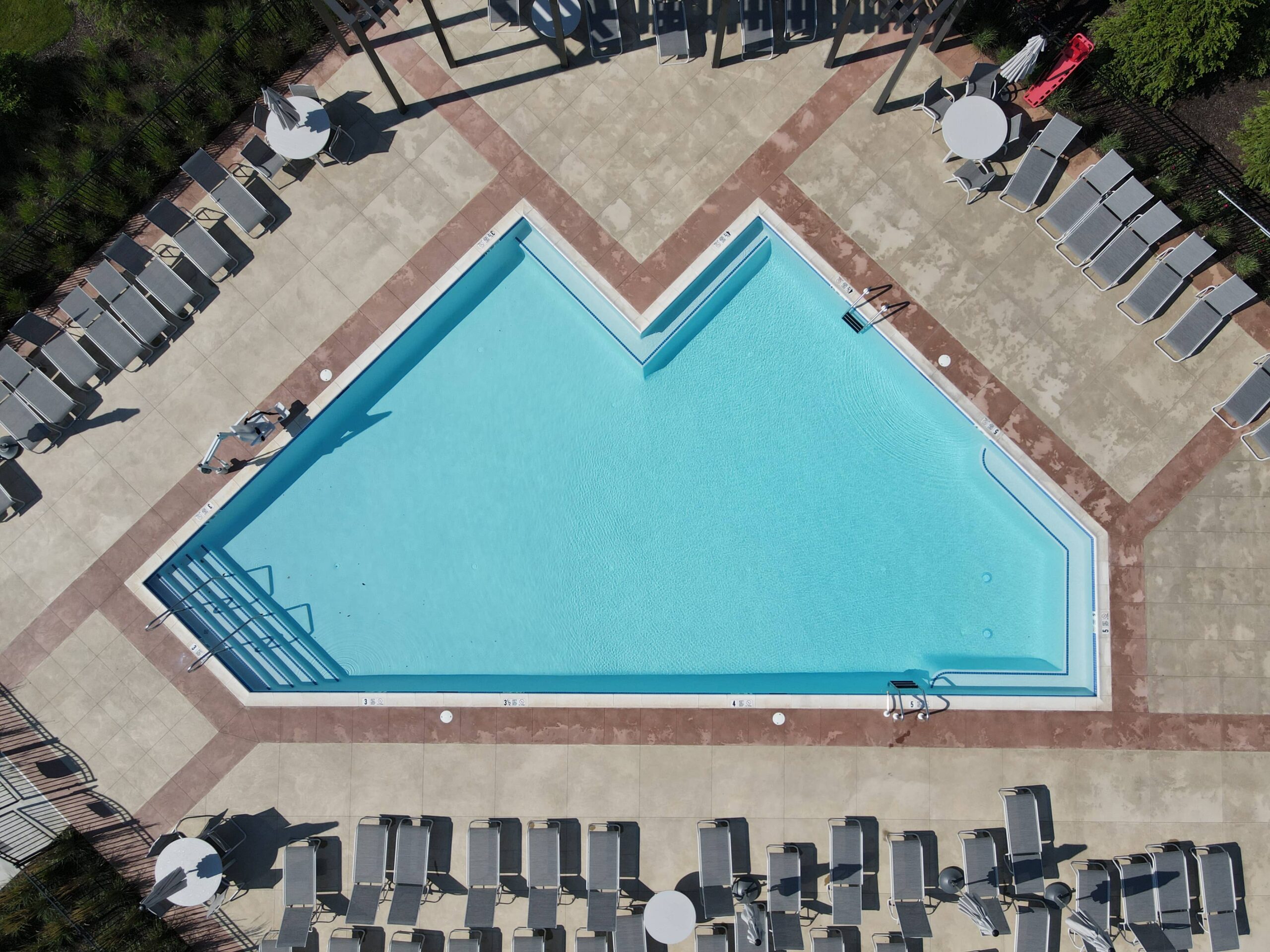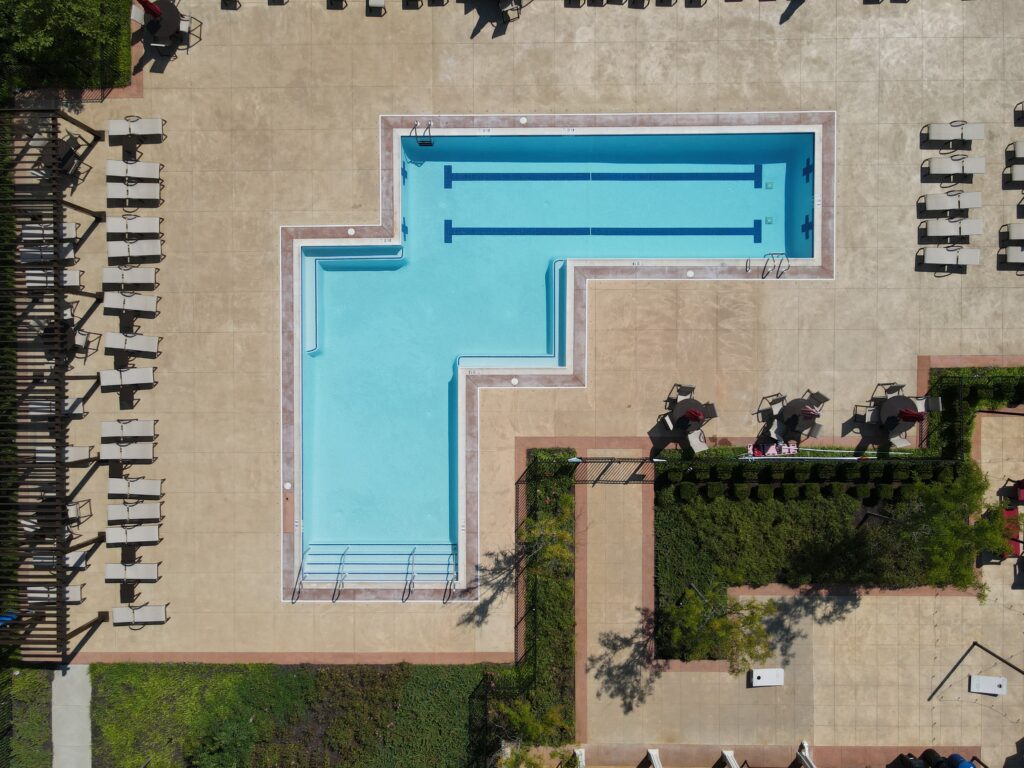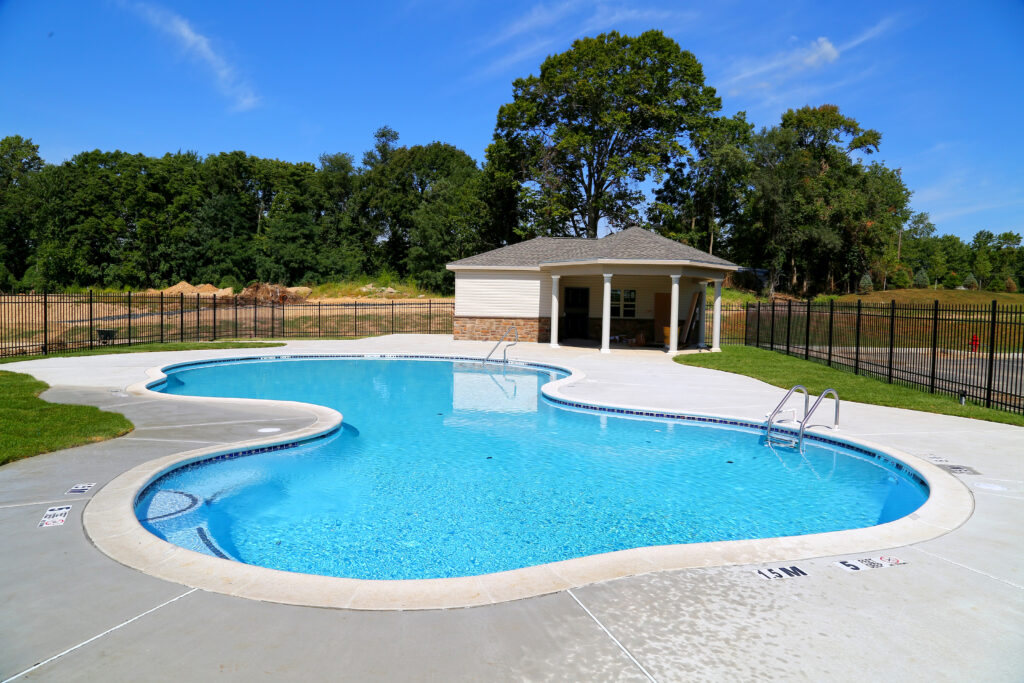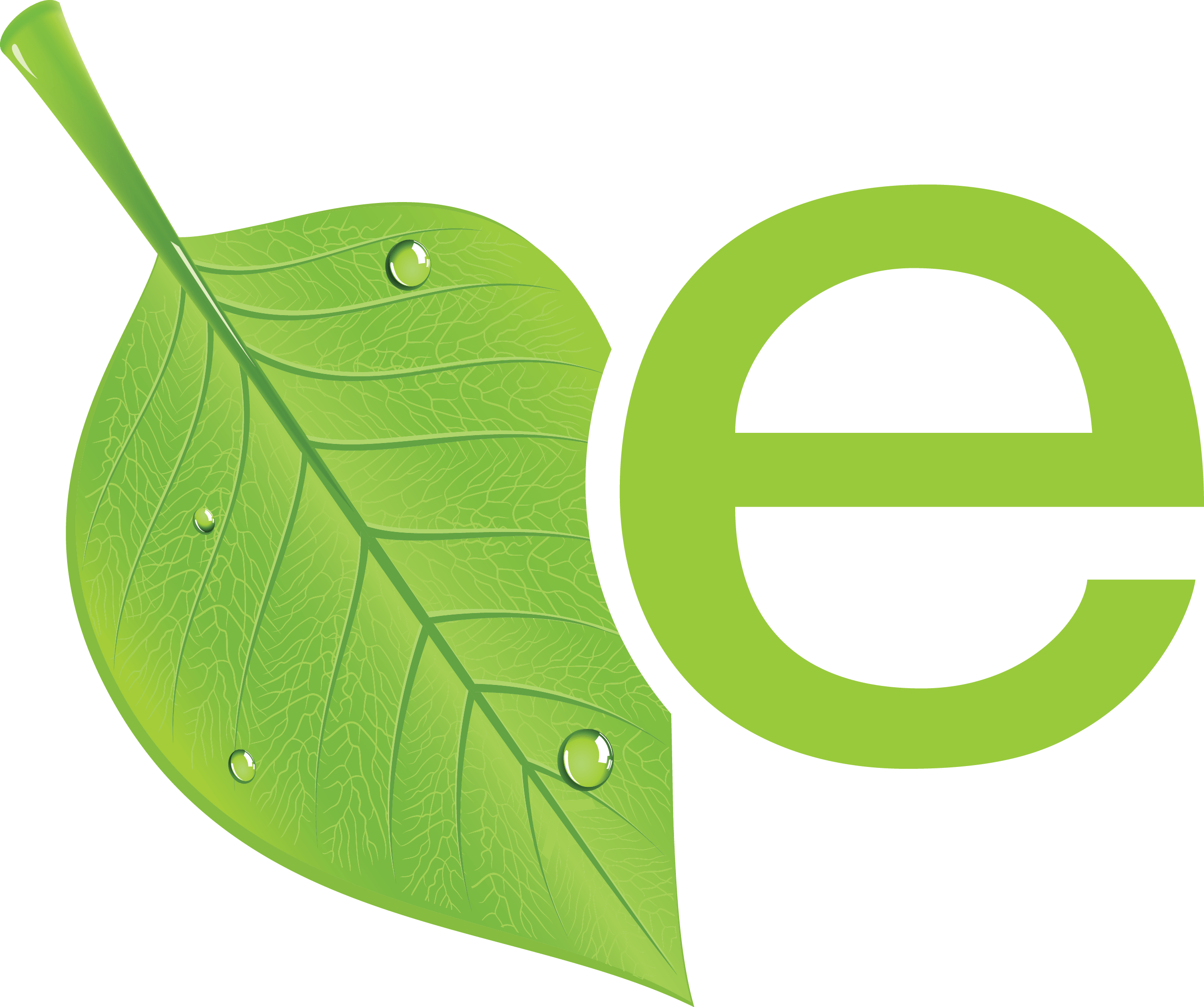
When it comes to commercial pool management, maintaining the cleanliness and water quality of the pool is of utmost importance. By following the right pool maintenance best practices, you can ensure a safe and enjoyable swimming experience for your patrons. In this article, we will explore some essential commercial pool care tips to help you keep your pool in top condition.
Maintaining Cleanliness and Water Movement
Proper maintenance of a commercial pool goes beyond just keeping the water clear. It also involves ensuring the water remains clean and properly circulated. This can be achieved through a combination of effective cleaning routines and maintaining optimal water quality.
Regular cleaning routines are essential for keeping the pool water clean and inviting. Skimming the water surface to remove debris and using a pool vacuum to clean the pool floor are important steps. Additionally, using a pool brush to remove algae and mold from the interior liner helps maintain a pristine pool environment.
To maintain water cleanliness, proper water turnover through circulation and filtration is crucial. Ensuring the pool pump operates efficiently and regularly backwashing the pool filter helps reduce the growth of algae and other contaminants. It’s also important to regularly test the water quality and adjust the pH level using alkalinity-increasing products like baking soda. Using a pH neutral coating like aquaBRIGHT® will allow you to spend much less time balancing your water chemistry.
Key Takeaways:
- Skim the water surface and vacuum the pool floor regularly
- Use a pool brush to remove algae and mold from the interior liner
- Maintain proper water turnover through circulation and filtration
- Regularly backwash the pool filter to reduce contaminants
- Test water quality and adjust pH levels
- Sanitize the water with chlorine for safe swimming
By following these practices, pool owners and operators can ensure that their commercial pool remains clean, inviting, and safe for swimmers.

Long-Term Maintenance and Resurfacing
When it comes to commercial pool care, a proactive approach is key to ensuring the longevity and appearance of the pool surface. Off-season pool maintenance is just as important as regular care during peak times. By adopting a year-round pool care strategy, pool owners can protect their investment and prevent potential damage that may arise from neglect.
One crucial aspect of long-term maintenance is providing comprehensive training for pool staff on standard operating procedures. Well-trained staff will be equipped with the knowledge and skills necessary to efficiently care for the pool throughout the year. Additionally, stocking up on the right cleaning equipment ensures that the pool is kept in optimal condition, reducing the risk of costly repairs or resurfacing.
As the pool gets heavily used, especially during the summer months, it’s essential to monitor and maintain water cleanliness. Regular water testing and treatment should be carried out to prevent the growth of algae and maintain optimal water quality for swimmers.
Over time, the pool surface may show signs of wear and tear. When this occurs, pool resurfacing becomes a consideration. One popular option for commercial pool surfaces is polyFIBRO®, a finish that offers durability and longevity, ensuring that the pool remains in excellent condition for years to come.
Key Takeaways:
- Implement daily and weekly checklists to ensure proper pool maintenance.
- Train pool staff on standard operating procedures and best practices.
- Regularly test and treat pool water to maintain optimal quality and cleanliness.
- Inspect and maintain pool accessories and equipment for safety and aesthetics.
- Consider resurfacing the pool when signs of wear and tear appear.

FAQ
Why are daily and weekly checklists important for commercial pool maintenance?
Daily and weekly checklists are essential for commercial pool maintenance as they ensure all necessary tasks, such as general cleaning, skimming, water testing, equipment check, water treatment, and ensuring smooth operations, are completed regularly and efficiently.
What are some effective vacuuming techniques for pool cleaning?
To effectively clean the pool, it is important to use proper vacuuming techniques such as avoiding air pockets, using slow overlapping motions, and ensuring thorough coverage of the pool floor.
How should stainless steel accessories be maintained?
Stainless steel accessories should be polished and waxed regularly to maintain their appearance and protect against damage from pool chemicals.
Why should regular inspections of accessories and equipment be conducted?
Regular inspections of accessories and equipment, such as ladders, steps, and railings, are important to ensure safety and maintain the aesthetics of the pool.
Why is the replacement of tubing and regular maintenance of the pump and filter important?
The replacement of tubing and regular maintenance of the pump and filter are crucial for proper circulation and filtration of the pool water, ensuring its cleanliness and clarity.
What cleaning products should be used for different areas around the pool?
It is important to use appropriate cleaning products for different areas around the pool, such as deck, tile, grating, and grout, to achieve a clean and shiny surface.
How should the auto-fill system be maintained?
The auto-fill system should be checked regularly for sensors, auto-floats, and cleanliness to prevent breakage and damage.
What are some important tasks for pool cleaning routines?
Pool cleaning routines should include skimming the water surface, using a pool vacuum for the pool floor, and removing algae and mold from the interior liner with a pool brush.

Why is regular water turnover important?
Regular water turnover through proper circulation and filtration is crucial for maintaining water cleanliness and preventing the growth of algae and other contaminants.
How can proper water balance be maintained?
Proper water balance can be maintained by regularly measuring and adjusting the pH level using alkalinity increase products like baking soda.
What is the role of chlorine in pool water maintenance?
Chlorine is used for regular water testing and sanitization to keep the pool water clean and safe for swimmers.
Is pool maintenance a year-round chore?
Yes, pool maintenance should be a year-round chore to protect the investment and prevent damage to the pool.
Why is it important to train pool staff on standard operating procedures?
Proper training of pool staff on standard operating procedures ensures efficiency and effectiveness in pool care and maintenance.
Why is stocking up on cleaning equipment important?
Stocking up on cleaning equipment is essential to ensure that all necessary tools are available for maintaining the pool in perfect condition.
When should pool water cleanliness be given extra attention?
Pool water cleanliness should be given extra attention, especially during the summer when the pool is heavily used.
When should pool resurfacing be considered?
Pool resurfacing should be considered when the pool surface starts showing signs of wear and tear. Options like aquaBRIGHT and polyFIBRO offer durability and longevity for commercial pool surfaces.
